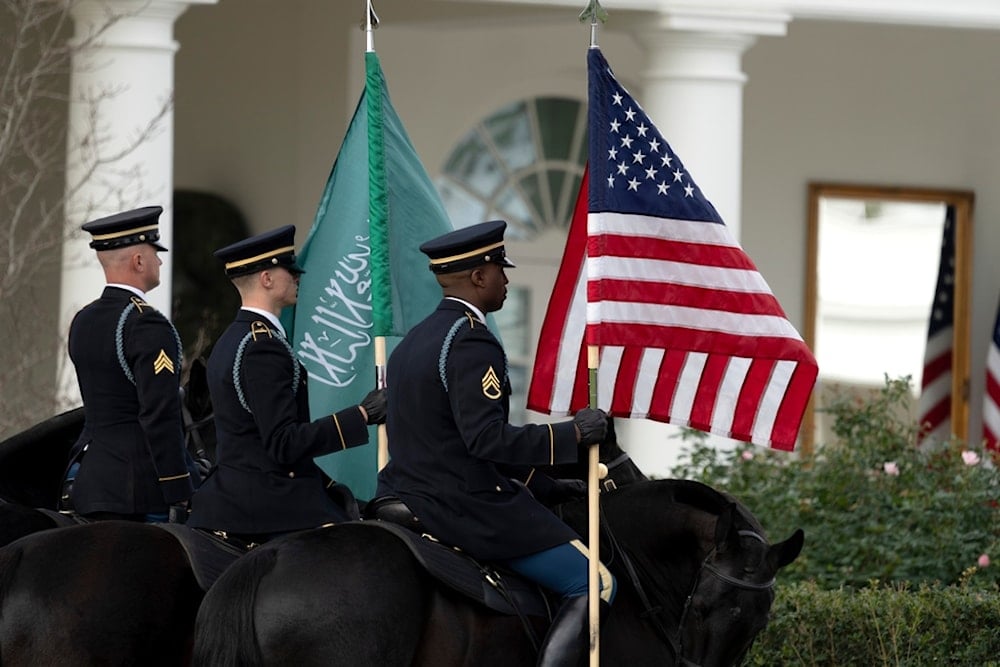Saudi nuclear deal excludes enrichment, says US Energy Secretary
US Energy Secretary Chris Wright said the new civil nuclear agreement with Saudi Arabia contains no uranium enrichment provisions and is limited strictly to peaceful electricity generation.
-

Members of a mounted honor guard hold Saudi Arabian and American flags near the Oval Office of the White House after the arrival of Saudi Arabia's Crown Prince Mohammed bin Salman, Tuesday, Nov. 18, 2025, in Washington (AP Photo/Mark Schiefelbein)
US Energy Secretary Chris Wright on Wednesday dismissed speculation that Washington’s new civil nuclear cooperation agreement with Saudi Arabia includes provisions related to uranium enrichment, stressing that the arrangement is strictly limited to peaceful power generation.
Speaking to Fox News, Wright said the accord focuses solely on enabling the kingdom to produce electricity through nuclear energy. "It is about civilian, civil use of nuclear power. It's not about enrichment. It's not about anything related to weapons. It's just about generating electricity, secure, reliable, affordable electricity," he noted.
According to Wright, the understanding centers on building a major nuclear power facility in Saudi Arabia, forming part of a broader set of deals unveiled during Crown Prince Mohammed bin Salman’s visit to Washington.
Saudi Nuclear Calculus
The declaration follows more than a decade of Saudi attempts to build an indigenous nuclear program, including repeated efforts to obtain the right to enrich uranium on its own soil, an ambition Riyadh has often justified by pointing to Iran’s nuclear progress. Tehran, however, has consistently maintained that its program is strictly peaceful and fully compliant with the Nuclear Non-Proliferation Treaty (NPT), a position repeatedly affirmed by Iranian officials and reflected in years of International Atomic Energy Agency (IAEA) monitoring. Despite this, Saudi policymakers continue to cast doubt on Iran’s intentions, using Tehran’s civilian enrichment activities as a pretext to pursue their own sensitive capabilities.
Although China brokered a diplomatic thaw between Saudi Arabia and Iran in 2023, the Saudi leadership has shown little willingness to translate that rapprochement into meaningful cooperation. Any genuine nuclear collaboration remains impossible not because of Tehran, but because Riyadh continues to align its security posture with Washington, refusing to consider regional frameworks that could enhance collective stability. Moreover, Iran cannot, and under the NPT is prohibited from, transferring sensitive nuclear technology to any state, making Saudi accusations about Iranian unwillingness irrelevant.
Saudi Arabia’s nuclear ambitions were also closely linked to US attempts to secure a normalization agreement with "Israel," an effort widely viewed in the region as part of Washington’s strategy to realign the Middle East at the expense of Palestinian rights and regional sovereignty. While that broader political deal has stalled, Washington’s decision to advance the nuclear track separately underscores its intent to deepen Saudi dependence on US strategic and technological frameworks, even as it imposes firm limits on the capabilities the kingdom may acquire.
Read more: MBS pushes Saudi normalization with 'Israel' during White House visit

 3 Min Read
3 Min Read










